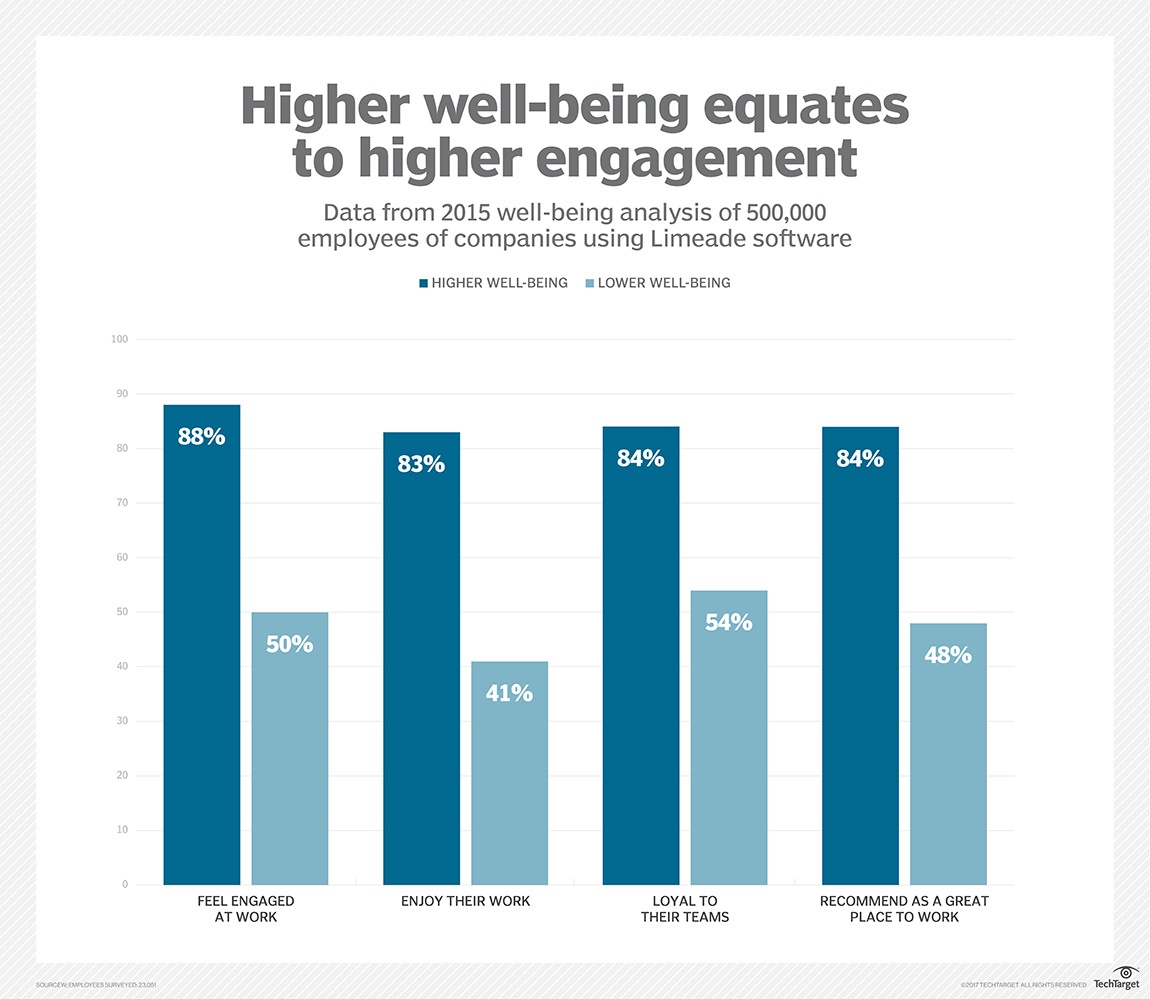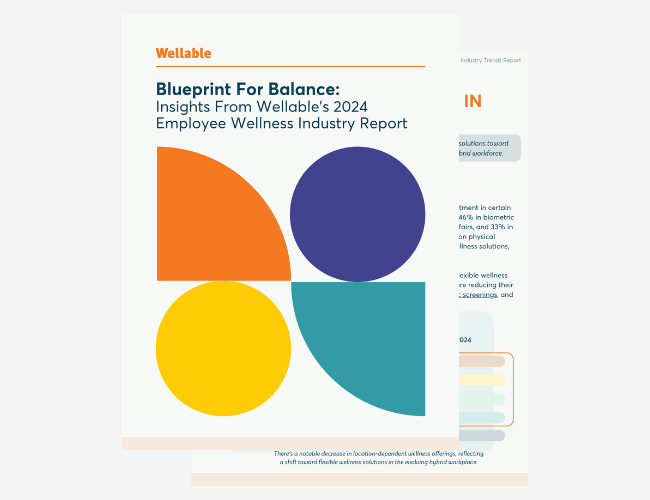A recent data analysis from a corporate wellness software vendor shows that engaged employees and wellness program participants are more likely to stay at their jobs and be productive. Specifically, turnover rates were four times higher for employees not in wellness programs and two times higher for employees signed up but not participating in them intensively. The data is from more than 500,000 employees working for U.S.-based employers ranging in size from 1,000 to 2,000 workers in the healthcare, retail, and technology sectors.

As noted by the chart above, employees with higher well-being significantly outperform those with lower well-being across numerous categories, all of which are tied to lower employee turnover. The driver of lower turnover goes beyond just a healthier workforce. It is attributable to “corporate wellness software”, which when implemented appropriately, drives overall employee engagement. This is why biometrics screenings and health risk assessments cannot help improve the broader metrics associated with value on investment (e.g., turnover, productivity, etc.). These services do not engage employees; they are done to employees. Corporate wellness software allows employers to create fun and interesting programs that capture the attention of employees and makes it easy to engage and see value from the program. As a result, employees can engage with their colleagues in healthy competitions, afternoon walks, and more, improving their connection to the organization while improving their health.
It is important to note that no matter how great an employee software platform is, it cannot be useful if employees are unaware of it, which is why program marketing and communications are so critical. The role of a software platform is to engage users once they join, so choosing a wellness vendor that will help develop and execute upon a communication strategy is critical.












